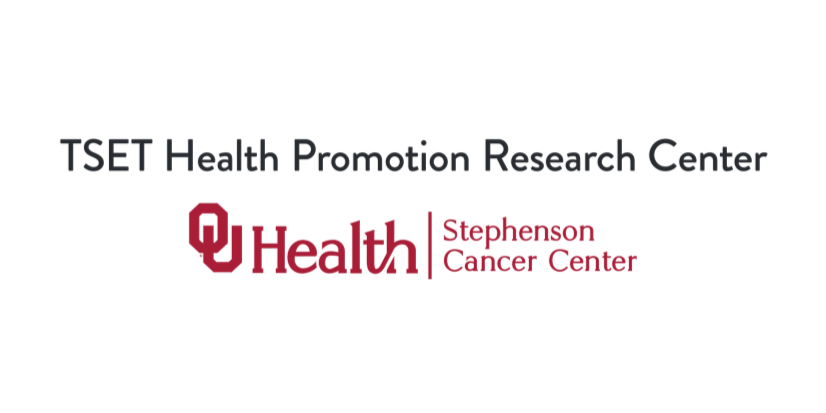Cannabis Use Among Those in Cancer Treatment
- Category: News
- Posted On:

Researchers with the TSET Health Promotion Research Center (HPRC) recently authored an article titled, “Cannabis Use Among Adults Undergoing Cancer Treatment,” which was published in Cancer. Cancer, an international interdisciplinary journal of the American Cancer Society, publishes high-impact, peer-reviewed original articles and solicited content on the latest clinical research findings.
As cannabis use increases, there is an increasing need to understand the risks and benefits of cannabis use in relation to cancer care. This study enrolled patients undergoing cancer treatment at the OU Health Stephenson Cancer Center, a National Cancer Institute-designated cancer center. Patients were asked about their current cannabis use, cancer-related symptoms, reasons for using cannabis, whether they perceived cannabis to be helpful for their symptoms, and the risks they believed were associated with cannabis use. The researchers compared cancer-related symptoms and perceived risks between individuals who reported actively using cannabis in the last 30 days and those who did not report cannabis use.
Participants of the study who reported using cannabis were younger than those who reported no use in the past 30 days, and they were more likely to be male, disabled/unable to work, to have lower income, and to have Medicaid insurance. Participants who reported cannabis use also reported higher rates of respiratory symptoms, such as difficulty breathing, and were more likely to have tested positive for COVID-19 within the past year. Individuals who used cannabis also reported higher rates of cigarette use and prescription opioid medications than those who denied cannabis use. Participants’ current cancer type or stage of disease did not significantly differ between the two cannabis use groups.
Participants of the study who reported past 30-day cannabis use most frequently reported using cannabis for pain, cancer, sleep problems, anxiety, and nausea/vomiting, and they reported the greatest perceived benefits for sleep problems, nausea/vomiting, headaches, pain, muscle spasms, and anxiety. However, participants who used cannabis also reported feeling worse physically and psychologically compared to those who did not use cannabis. For example, individuals who reported using cannabis in the past 30 days also reported higher rates of anxiety, depression, sleep, pain and nausea. Additionally, participants who used cannabis felt that cannabis was less risky to their health than alcohol, smoking, and opioids than those who did not use cannabis, and they felt cannabis was much less likely to cause other adverse symptoms or conditions, such as respiratory symptoms, memory problems, hallucinations, and paranoia, compared with those who did not use cannabis recently.
The research outlined in this article showed that while patients who used cannabis reported relief for certain symptoms, they also reported worse psychological and physical health overall than non-users. Because the analyses focused on one point in time, it is unclear whether patients’ higher symptoms motivated their cannabis use or if using cannabis made their symptoms worse. More research is needed to identify which symptoms may improve or worsen with cannabis use, and whether cannabis dosing of cannabis impacts symptoms. Ultimately, rigorous randomized trials are needed to determine the impact of cannabis on cancer‐related symptoms and characterize adverse events associated with cannabis use.
The article can be read in its entirety here.
The HPRC receives funding from the OU Health Stephenson Cancer Center via an NCI Cancer Center Support Grant (P30CA225520) and the Oklahoma Tobacco Settlement Endowment Trust contract number STCST00400_FY24. This study was supported by NCI grant K08CA266937 to Desiree R. Azizoddin and NIMHD grant to K01MD015295 to Adam C. Alexander.


.png)
